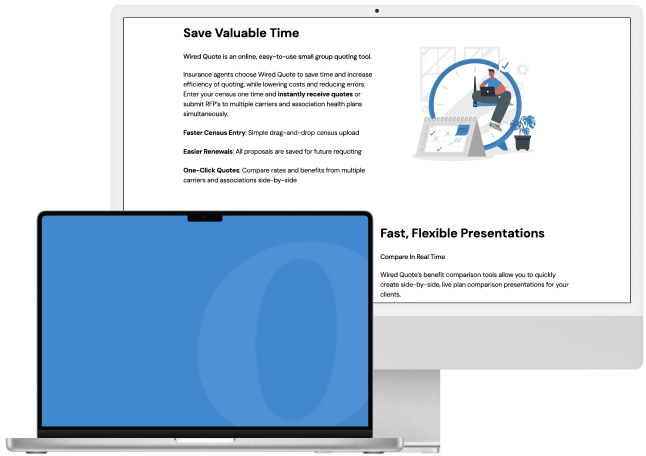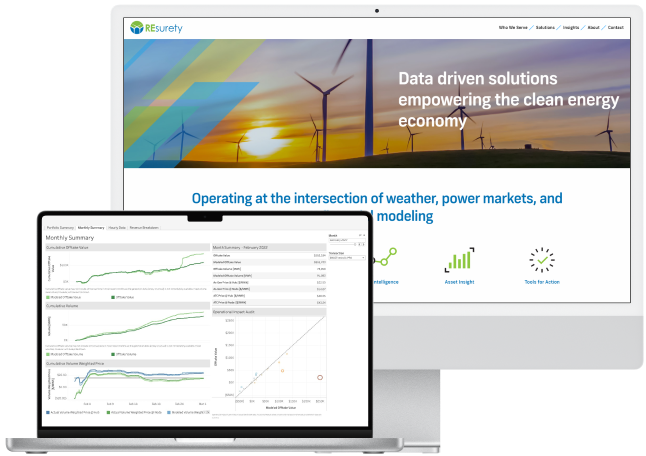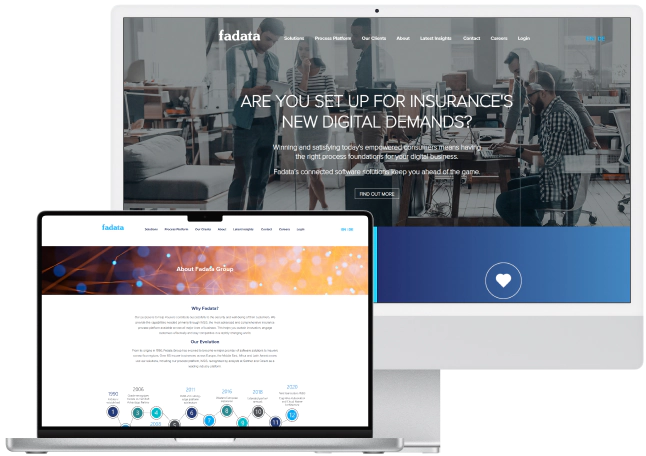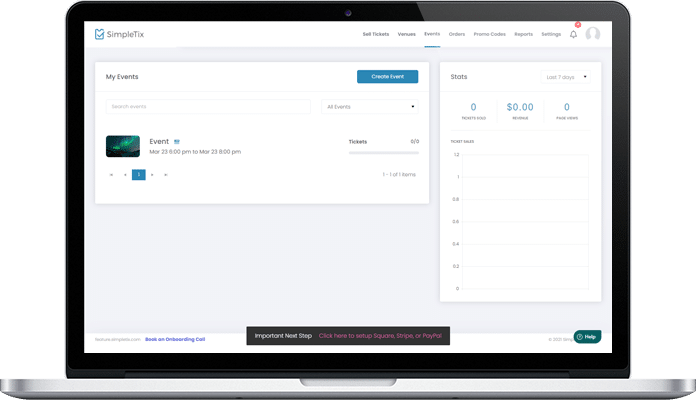What we offer
Data warehouse as a service (DWaaS) is a solution allowing organizations to store, organize and manage databases with an in-cloud infrastructure. Better efficiency, stronger security, and higher performance are typical traits of a DWaaS, encouraging businesses to depart their on-premises data management systems gradually. The leading cloud service providers possess many financial and technical capabilities that most companies can hardly afford to build and maintain a reliable and up-to-date data warehouse. Thus, adopting DWaaS solutions allows organizations to forget many limitations when storing and processing data.
We provide our clients with a complex approach to their data management by creating a cost-efficient and resource-saving data warehouse in the cloud. We help them avoid data-flow bottlenecks and infrastructural pitfalls while benefiting from the best modern practices of in-cloud data governance. We offer numerous DWaaS features and capabilities that make managing data easier, such as security and compliance controls, reporting tools, and many more.
DWH development
We help establish the foundation for effective data management and analysis with our advanced DWH development. The process involves creating and defining the data warehouse structure, specifying the types of data to be stored in the warehouse, as well as identifying and connecting to the various data sources.
DWH configuration
Setting up a cohesive and effective DWH structure goes with specific technologies and tools. They can vary depending on the needs and requirements of each individual business and project. Some of the most commonly used technologies and tools for DWH configuration include cloud servers, enterprise data warehouse software, business intelligence software, data integration tools, reporting tools, and more.
DWH integration
The process when multiple data sources are integrated into a unified and centralized storage system is essential for any business that relies on data stored in multiple locations. DWH integration helps businesses manipulate their data more effectively, thus leading to improved decision-making and performance. DWH integration is a crucial step in any DWaaS project, as it allows for more seamless access and analysis of data across various sources.
Data migration
Assisting organizations in migrating their data smoothly from one source to another, we use the best migration practices, such as planning and scoping the migration process, reviewing existing data and structures to identify commonalities and differences, and testing the migration process thoroughly to ensure that all data has been migrated successfully without any missing or inaccurate information.
DWH support
We support organizations with a variety of critical data warehouse services by providing a cloud-based platform for their data management and storage. Our support service package includes everything any company may need to establish an effective data management system: DWH development, data migration, DWaaS integration and configuration, etc.
DWH consulting
Our DWH consulting services include but are not limited to such aspects and activities as providing guidance on the best data warehouse structure for a given business, defining the types and sources of data to be stored in the data warehouse, designing and implementing an efficient data management and analysis plan, and assisting with the selection of data warehouse software and related tools.
Transforming any company into a data-driven enterprise is an urgent demand of our time. Cloud platforms are here to provide all the necessary resources for up-to-date data warehousing. Our DWaaS solutions offer powerful vehicles to deliver any organization from the on-premises past to the in-cloud future.
Trying to acquire tools and technologies to proceed with cloud-based data warehousing without relevant skills and expertise is questionable. Professionals can do better and faster in any case. Moreover, the entire process appears cheaper with the experts since their approach is rational in doing nothing redundant or wrong. DICEUS helps you save a lot of time and money by utilizing numerous opportunities of our advanced data warehouse platform as a service.
Benefits of a data warehouse as a service
DWaaS can be a worthwhile practice for any business seeking to establish a data warehouse, as it provides an effective way to manage and analyze data without the overhead associated with maintaining and operating a self-hosted solution. The following aspects inherent in the DWaaS paradigm reveal how organizations can benefit from doing data management in the cloud.
Data warehouse as a service: How it works
DWaaS works by providing businesses with access to a comprehensive and powerful data warehouse platform hosted in the cloud.
Such a platform includes the storage, calculation, and analysis capabilities required to effectively store and manage even the largest and most complex datasets. It allows businesses to leverage their data regardless of its size or complexity while providing data owners with complete access to the information they need to make data-driven decisions. To successfully adopt a DWaaS solution, a company should proceed with the following:
What impacts your project duration
Every DWaaS solution is highly individual as it is developed for a particular organization with specific needs and goals. At the same time, a common algorithm for project execution is available. Violations in its steps can result in delays with the DWH completion. The following factors can impact your project duration badly.
- Insufficient or poorly performed assessment of the existing on-premises data warehouse
- Underdeveloped project requirements represented to a DWaaS vendor
- Poorly arranged data migration performed without relevant skills and expertise
- The size and range of data sets: the larger the data, the longer the process
- The data complexity: sophisticated data sets require more processing and analysis time
What affects your project costs
No one-fits-all calculation for different DWaaS projects is available. Every project has an individual cost estimation. Every project’s technical structure and organizational model can have different variables resulting in various work scopes. Thus, the specific factors affecting your project costs can include but not be limited to:
- Pre-development preparations aimed at assessing the range and complexity of elements to be available in the future in-cloud DWH
- Modifications in the DWH model when data integration occurs through different algorithms of extraction and storage
- Hybrid data migration implies sophisticated methods when on-premises hosting remains working in parallel with the in-cloud DWH
- Implementation of advanced technologies of predictive data analytics
- The number of DWH users having access to the system under different roles with different permissions
What we need from your side
A practical approach to DWH development implies tight collaboration between a DWaaS vendor and a company. Mutual understanding is essential to avoid delays in project execution and redundant expenditures. To harness the efficiency of DWaaS adoption, a company should provide us with the following:
- A thoroughly performed evaluation of the exiting DWH infrastructure (if available)
- Technical requirements for the in-cloud DWH according to the company’s business model
- The number and types of sources to be used in data extraction
- The range and complexity of the desired data analytics tools
- The staff composition and related permission limitations regarding access to the in-cloud DWH
Our tech stack





























































Explore our case studies
Frequently asked questions
What is a data warehouse as a service (DWaaS)?
Data warehouse as a service (DWaaS) is a solution allowing organizations to store, organize and manage databases with an in-cloud infrastructure. Unlike self-hosted on-premises DWHs, DWaaS solutions face limitations with neither storage space nor computing power. DWaaS vendors utilize the enormous technical capabilities of the global cloud platforms with their abundant hardware and software resources. Clock-around customer support, regular infrastructural upgrades, and a cumulative knowledge base of the world-best experts constitute the DWaaS advantages unreachable by any self-hosted system.
What are the 4 aspects of a data warehouse?
The 4 aspects of the data warehouse are as follows: Firstly, data collection is gathering information from different sources and storing it in a single data warehouse. Secondly, data management is organizing and managing data once it has been collected to store it in a structured and accessible format. Thirdly, data analysis is analyzing and interpreting data to make informed and effective decisions. Fourthly, data visualization presents data in a graphical format to be easily understood and interpreted.
What can be an excellent example of a data warehouse?
Google’s data warehouse is an excellent example of a large-scale and powerful data warehouse that can serve a very specific business need and purpose. The solution provides a massive amount of information to users worldwide, enabling Google’s various products and services.




